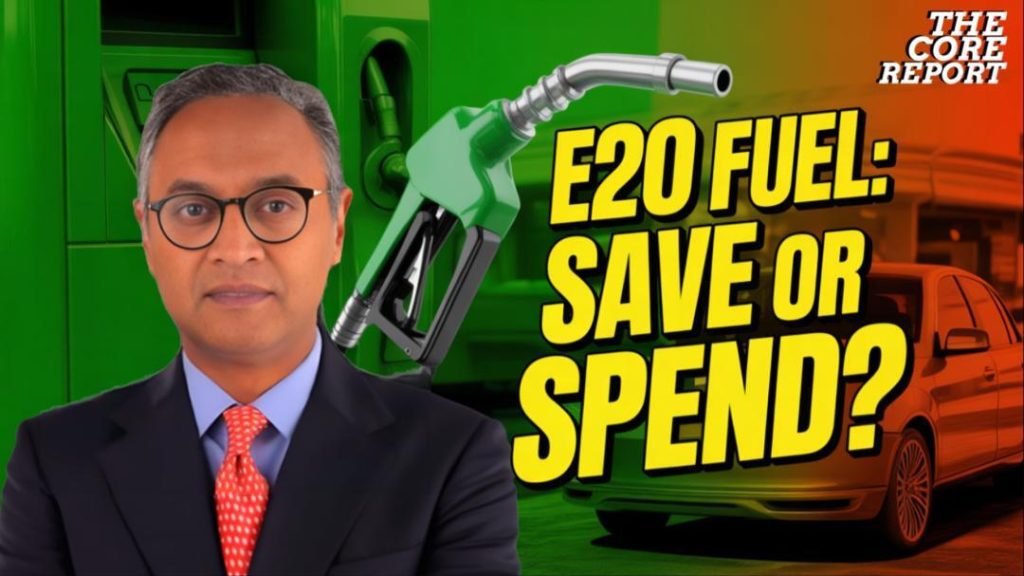
E20 Fuel in India: Benefits, Risks & What Vehicle Owners Must Know
In a significant move towards reducing carbon emissions, boosting energy security, and supporting farmers, India has introduced E20, a petrol blend containing 20% ethanol. The government has been promoting the use of ethanol in petrol to reduce dependence on foreign oil, generate employment opportunities, and create a new market for farmers. As the country moves towards a cleaner and more sustainable fuel future, it’s essential for vehicle owners to understand the benefits, risks, and what they need to know about E20 fuel.
Benefits of E20 Fuel
Studies conducted by the government have reported several benefits of using E20 fuel. One of the most notable advantages is the reduction in carbon emissions. E20 fuel emits 20-30% less carbon dioxide compared to regular petrol, making it a more environmentally friendly option. Additionally, the use of ethanol in petrol can help reduce greenhouse gas emissions, contributing to a cleaner environment.
Another significant benefit of E20 fuel is its ability to improve acceleration. The blend of 20% ethanol and 80% petrol provides a better combustion ratio, resulting in improved engine performance and faster acceleration. This is particularly noticeable in vehicles that are equipped with advanced fuel injection systems.
E20 fuel also offers a cost advantage to vehicle owners. As the price of ethanol is lower than petrol, using E20 fuel can lead to savings of around ₹1-2 per liter. This can add up to significant cost savings over time, making it a more economical option for vehicle owners.
Risks Associated with E20 Fuel
While E20 fuel offers several benefits, there are also some risks associated with its use. One of the primary concerns is the potential damage to older vehicles that are not designed to run on E20 fuel. The blend of 20% ethanol and 80% petrol can corrode fuel system components and engine parts, leading to costly repairs.
Older vehicles may also experience reduced mileage and decreased engine performance when running on E20 fuel. This is because the fuel system and engine components in older vehicles are not designed to handle the unique properties of ethanol. As a result, vehicle owners may need to spend more on maintenance and repairs to keep their vehicles running smoothly.
Another risk associated with E20 fuel is the potential for engine knock or pinging. This occurs when the fuel-air mixture in the engine ignites too quickly, causing a knocking or pinging sound. While this is not a common issue, it can lead to engine damage and decreased performance if left unchecked.
What Vehicle Owners Must Know
As India moves towards a future where all new vehicles will be E20-compliant by 2025, it’s essential for vehicle owners to take steps to ensure a smooth transition. Here are some things that vehicle owners must know:
- Check your vehicle’s compatibility: Vehicle owners should check their vehicle’s compatibility with E20 fuel. If their vehicle is not designed to run on E20 fuel, they may need to upgrade their fuel system or engine components to ensure smooth operation.
- Use the right fuel: Vehicle owners should ensure that they are using the right type of fuel for their vehicle. Using E20 fuel in a vehicle that is not designed for it can lead to costly repairs and decreased performance.
- Monitor your vehicle’s performance: Vehicle owners should monitor their vehicle’s performance and watch out for any signs of engine knock or pinging. If they notice any unusual sounds or symptoms, they should consult a mechanic to diagnose and repair any issues.
- Consider upgrading your vehicle: Vehicle owners who are concerned about the potential risks associated with E20 fuel may want to consider upgrading their vehicle to one that is designed for E20 fuel. This can help ensure a smoother and more reliable driving experience.
Conclusion
E20 fuel offers several benefits, including reduced carbon emissions, improved acceleration, and cost savings. However, there are also some risks associated with its use, particularly for older vehicles that are not designed to run on E20 fuel. By understanding the benefits and risks of E20 fuel, vehicle owners can make informed decisions about their fuel choices and ensure a smooth transition to a cleaner and more sustainable fuel future.
Source:
https://youtu.be/zM_EyWPyliQ






